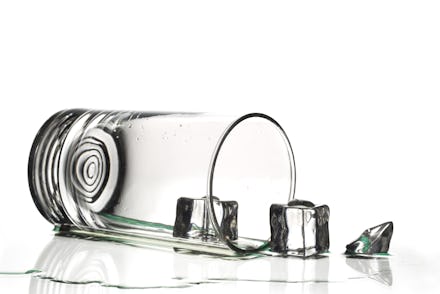Expert tips for pulling off a sober January, aka Drynuary

After a 2016 that may have inspired some heavy drinking, the first month of 2017 may be best spent booze-free. Drynuary, the tradition of not drinking in January, has different meanings to different people. Some may just want the challenge of socializing without alcohol, questioning the role alcohol plays in their daily lives. Others may want to save money after massive holiday spending, or focus on fitness and healthy eating resolutions.
A study of 10 regular drinkers who cut out alcohol for five weeks in 2014 showed that by eliminating booze, liver health as well as blood glucose levels improved, demonstrating that short-term abstinence can have beneficial health effects. Continuing not to drink, of course, is what would have a long-term positive effect on your health.
Abstaining from alcohol for only a month at a time may not have major lasting effects for the other 11 months of the year, but Drynuary may help you modify your consumption or healthy behaviors for the months to come. "Cutting out alcohol in the short term doesn't have any long-term effects," registered dietitian and spokesperson for the Academy of Nutrition and Dietetics Alissa Rumsey said in an email. "While you may lose some weight — especially if you were drinking a lot to start with — that weight will just come back on if you go back to your old drinking habits come February."
For those who want a more sustainable way to think about drinking beyond January, Rumsey recommends thinking about drinking alcohol in the context of an entire week. "Women should aim for no more than five to seven drinks per week, and men no more than 10-14 drinks per week," she said. "If your goal is weight loss, those numbers may need to be slightly less."
Whatever your reason for wanting a dry January, abstaining from drinking for a full 31 days is totally possible. We have some expert advice to help you pull off your month of sobriety.
Make your Drynuary commitment public
Whether that means declaring the first month of the year Drynuary on your Facebook page or group texting your regular drinking buddies, letting your social circle know that you're abstaining from alcohol will (hopefully) stop them from offering you a drink. And who knows, you may even inspire your crew to join in on the Drynuary fun. "Sharing that you're committed to a booze-free January keeps you accountable," Sanam Hafeez PsyD, an New York City-based licensed clinical psychologist, said via email.
Enlist a Drynuary buddy
"It's hard to socialize with friends who are drinking when you aren't," Hafeez said. "If you have friends who also want to have a dry January you can hang out together and not worry about any peer pressure." Friends who don't ever drink are also a great support network during your booze-free month.
Know your booze-free bar order
You don't need to drink alcohol to hang out at a bar. Britt Barrett, healthy coach at Daily Ayurveda, recommends asking for a bitters and soda or seltzer. "This is great for your gut and also makes you feel like you are drinking," Barrett said via email. "Plus, nobody will ask you if you want a drink when you are holding something that resembles an alcoholic beverage." So tricky, and you'll save money.
Schedule booze-free activities
If you have specific plans, it's less likely you'll default to wanting to open a bottle of wine or see what's going on at your local bar. You know that booze-free buddy you committed to for Drynuary? Take a cooking class or improv class together, plan a board game night or invite your friends over for some tasty mocktails.
Focus on fitness!
"Your body will certainly thin out once booze is removed," Hafeez said. "Get your mindset into bettering your health inside and out." Workout with YouTube videos in your living room or enroll in a gym, which may have a hefty New Year's discount. Not only will working out keep you active outside of your regular drinking scene, it'll have you craving cold water over cold beer after a long workout.
"When you start to see the weight melting off from cutting out alcohol, you'll be motivated to keep it going," Hafeez said. And while cutting out the calories in alcohol may be a reason for your weight loss, avoiding the drunchies can be a benefit as well. "When we have had too much to drink, we are more likely to overeat and less likely to make good food choices," Rumsey said. "By cutting down on the alcohol you drink, you'll save some calories and be more likely to make better food choices."
Before you know it, Dryruary has arrived!
Happy February! What's alcohol, again?